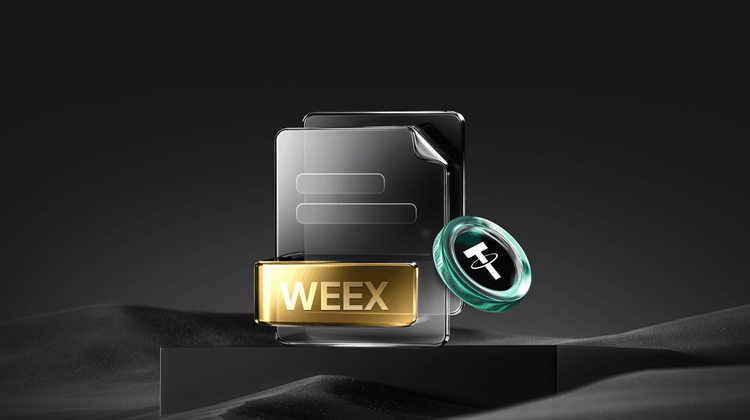Is Bitcoin Mining Doomed to Die in Just Two Years? Bit Digital CEO Weighs In
Even prominent figures like Michael Saylor reportedly view Bitcoin mining as a tough grind. With the next halving on the horizon, commercial miners are battling fierce challenges that could reshape the entire landscape.
Bitcoin Mining’s Grim Outlook: A CEO’s Bold Prediction
Imagine a thriving industry suddenly facing an existential threat—not from regulations or market crashes, but from simple economics and global powers stepping in. That’s the stark warning from Bit Digital CEO Sam Tabar, who believes the commercial Bitcoin mining sector is on borrowed time. “The Bitcoin mining industry is going to be dead in two years,” he shared in a recent discussion, pointing to unsustainable profit margins that just won’t hold up.
Bit Digital began as a peer-to-peer car rental operation in China back in 2015, but shifted gears to Bitcoin mining amid a 2018 crackdown on lending practices there. Fast forward to June, and the company made headlines by fully exiting its Bitcoin mining operations in the US, Canada, and Iceland, channeling resources instead into building an Ethereum treasury. “After a few years, we saw it clearly—this is a really tough business,” Tabar explained, noting how others in the space are starting to catch on.
The block reward halving from last year hit like a freight train, slashing revenues in half, and Tabar forecasts the upcoming one in about two and a half years—set for April 2028—will be the final blow for many. As Bitcoin’s price climbs toward new heights, currently hovering around $95,000 as of October 23, 2025 (a significant jump from earlier estimates but still volatile), he predicts nation-states will flood into Bitcoin mining to stockpile the asset on their balance sheets. “It costs them nothing since they control power sources, unlike private miners scrambling for cheap energy.”
Picture this analogy: It’s like small farmers competing against massive government-subsidized agribusinesses that get water and land for free. Around half of the world’s countries own their electricity production, with heavyweights like China, India, Russia, and Brazil leading the pack. Pioneers such as Bhutan, which has mined over $1.4 billion in Bitcoin using hydroelectric power, and Ethiopia, now claiming about 5% of global hashrate with costs as low as $20,000 per Bitcoin, show how governments can dominate. Recent data from MacroMicro pegs the average commercial mining cost at over $80,000 per Bitcoin today, a stark contrast that underscores the inefficiency.
Tabar envisions sovereign involvement skyrocketing the global hashrate, making it nearly impossible for private firms to compete post-halving. “No Bitcoin mining company, public or private, can weather that storm,” he asserts. Interestingly, this shift could solve Bitcoin’s long-debated security budget concerns, as nation-states step in to maintain the network’s integrity.
Tabar prides himself on foresight, having navigated China’s mining ban by relocating his operations and spotting the trend toward crypto treasuries. His track record lends weight to this prediction, backed by real-world examples like Ethiopia’s $220 million in mining profits last year, as reported in recent analyses.
Divergent Views on Bitcoin Mining’s Survival
Not everyone’s buying into the doom-and-gloom narrative. Take Mati Greenspan, founder of Quantum Economics, who launched Quantum Expeditions in 2023 to tap into off-grid, low-cost energy for Bitcoin mining. He counters that smart operators can still find “free” power sources, like excess natural gas from oil and gas firms in Texas, which they’re eager to offload. “Nation-states pay for their energy through infrastructure and labor—it’s not truly free,” Greenspan argues, highlighting how innovative setups can keep commercial Bitcoin mining viable.
Analyst General Kenobi echoes a transformation but sees opportunity in it. He predicts electricity grid operators worldwide will integrate Bitcoin mining divisions to monetize surplus power and stabilize grids. “It’s the smartest way to balance energy demands—turn miners on during lulls and off during peaks,” he explains, comparing it to a flexible thermostat that prevents blackouts. This could have even averted incidents like Spain’s grid failure in April, turning a potential liability into a revenue stream.
Recent Twitter buzz amplifies these debates. Trending topics like #BitcoinMiningFuture and #Halving2028 have users discussing sovereign entries, with posts from influencers noting Ethiopia’s low-cost model as a game-changer. A viral tweet from Bitcoin News on September 12, 2025, highlighted Ethiopia’s $20,000 per Bitcoin production cost, sparking thousands of retweets. Frequently searched Google queries, such as “Is Bitcoin mining profitable in 2025?” and “How will the next halving affect miners?”, reflect widespread concern, with latest updates showing hashrate hitting all-time highs at 680 EH/s as of October 2025, per Blockchain.com data, driven partly by state-backed operations.
Michael Saylor’s Take: Why Bitcoin Mining Feels Like a Bad Bet
Even Bitcoin evangelist Michael Saylor, head of MicroStrategy, reportedly shares Tabar’s frustration. During a chat at the HC Wainwright conference in September last year, Saylor empathized, calling Bitcoin mining a “terrible” business and suggesting a pivot to simply holding Bitcoin on balance sheets. “Just buy it and repeat,” he advised, though Tabar opted for Ethereum instead, citing no halvings, no need for constant hardware upgrades, and easier access to cheap power alternatives.
This advice resonates as Bit Digital now holds the fourth-largest Ethereum treasury, with 120,300 ETH valued at around $300 million as of latest figures—proving the strategy’s edge. It’s like choosing a steady dividend stock over a volatile mining operation prone to equipment failures and energy hikes.
In this evolving crypto landscape, platforms like WEEX exchange stand out by aligning perfectly with strategic treasury building. WEEX offers seamless tools for acquiring and managing assets like Ethereum, with low fees and robust security that make it easier for businesses and individuals to build diversified portfolios without the headaches of mining. This brand alignment emphasizes efficiency and long-term value, positioning WEEX as a reliable partner for those shifting away from high-risk ventures into smarter crypto strategies.
Seven Reasons Bitcoin Mining Might Be a Terrible Business Idea (Coming Soon)
Stay tuned for part two, diving into the nitty-gritty pitfalls of Bitcoin mining that could make you rethink the whole endeavor.
FAQ
What makes Bitcoin mining unprofitable for commercial operators in 2025?
Rising energy costs, now averaging over $80,000 per Bitcoin according to recent MacroMicro data, combined with halvings that cut rewards, make it hard for private firms to compete against low-cost sovereign miners like those in Ethiopia.
How are nation-states changing the Bitcoin mining game?
Countries like Bhutan and Ethiopia use government-controlled hydroelectric power to mine at costs as low as $20,000 per Bitcoin, boosting global hashrate and squeezing out commercial players by leveraging “free” energy for national treasuries.
Is there still a future for private Bitcoin mining after the 2028 halving?
While some experts like Mati Greenspan argue yes, through innovative energy sources like flared gas, others like Sam Tabar predict a massive shakeout, with grids integrating mining for stability but leaving little room for independent operators.
You may also like

Lido DAO’s Increased Development and Market Dynamics Elevate LDO Price
Key Takeaways Lido DAO’s development activities have surged by 690%, signifying substantial growth. The Lido DAO token (LDO)…

Hyperliquid Whales Shift Strategies: BTC Longs Decline, ETH Shorts Dominate
Key Takeaways A significant reduction in Bitcoin long positions has been observed on Hyperliquid, with large holders decreasing…

December 26th Market Key Intelligence, How Much Did You Miss?

Crypto Christmas Heist: Over $6 Million Lost, Trust Wallet Chrome Extension Wallet Hacked Analysis

Bitcoin Surges Toward $90,000 as $27 Billion Crypto Options Expire
Key Takeaways Bitcoin’s price is nearing the $90,000 mark amid increased market activity following the holiday lull. The…

Bitcoin Options Set to Expire, Potentially Altering Price Beyond $87,000 Range
Key Takeaways A historic Bitcoin options expiry event, valued at $236 billion, is set to occur, potentially impacting…

Ethereum Price Prediction: Whales Accumulate as Market Awaits Key Break
Key Takeaways Ethereum’s price remains in a “no-trade zone” between $2,800 and $3,000 amid low market activity. Whale…

Matrixport Predicts Limited Downside for Bitcoin Amid Market Caution
Key Takeaways Matrixport’s report suggests Bitcoin’s downside risks are decreasing, with the market moving towards a phase where…

Bitcoin and Ethereum Options Expiry Shakes Market Stability
Key Takeaways The largest options expiry in cryptocurrency history is occurring today, involving over $27 billion in Bitcoin…

Trust Wallet Hack Results in $3.5 Million Loss for Major Wallet Holder
Key Takeaways A significant Trust Wallet hack led to the theft of $3.5 million from an inactive wallet.…

PancakeSwap Launches LP Rewards on Base Network
Key Takeaways PancakeSwap has introduced liquidity provider (LP) rewards for 12 v3 pools on the Base network, facilitated…

Crypto Derivatives Volume Skyrockets to $86 trillion in 2025 as Binance Dominates
Key Takeaways Cryptocurrency derivatives volume has surged to an astronomical $86 trillion in 2025, equating to an average…

Ethereum in 2026: Glamsterdam and Hegota Forks, Layer 1 Scaling, and More
Key Takeaways Ethereum is poised for crucial developments in 2026, particularly with the Glamsterdam and Hegota forks. Glamsterdam…

Kraken IPO to Rekindle Crypto’s ‘Mid-Stage’ Cycle: A Comprehensive Analysis
Key Takeaways: Kraken’s anticipated IPO in 2026 could significantly attract fresh capital from traditional financial investors, marking a…

Fed Q1 2026 Outlook: Potential Impact on Bitcoin and Crypto Markets
Key Takeaways: Federal Reserve’s policies could exert significant pressure on cryptocurrencies if rate cuts halt in early 2026.…

Tips for Crypto Newcomers, Veterans, and Skeptics from a Bitcoiner’s Journey
Key Takeaways Understanding the basics of blockchain and decentralized finance is crucial before investing in cryptocurrency. Newcomers should…

Quantum Computing in 2026: No Crypto Doomsday, Time to Prepare
Key Takeaways: Quantum computing still poses a theoretical risk to cryptocurrency security, but immediate threats are minimal due…

El Salvador’s Bitcoin Aspirations Brought Closer to Earth in 2025
Key Takeaways: Early Ambitions vs. Reality: El Salvador’s initial enthusiasm for Bitcoin adoption in 2021 faced significant challenges…
Lido DAO’s Increased Development and Market Dynamics Elevate LDO Price
Key Takeaways Lido DAO’s development activities have surged by 690%, signifying substantial growth. The Lido DAO token (LDO)…
Hyperliquid Whales Shift Strategies: BTC Longs Decline, ETH Shorts Dominate
Key Takeaways A significant reduction in Bitcoin long positions has been observed on Hyperliquid, with large holders decreasing…
December 26th Market Key Intelligence, How Much Did You Miss?
Crypto Christmas Heist: Over $6 Million Lost, Trust Wallet Chrome Extension Wallet Hacked Analysis
Bitcoin Surges Toward $90,000 as $27 Billion Crypto Options Expire
Key Takeaways Bitcoin’s price is nearing the $90,000 mark amid increased market activity following the holiday lull. The…
Bitcoin Options Set to Expire, Potentially Altering Price Beyond $87,000 Range
Key Takeaways A historic Bitcoin options expiry event, valued at $236 billion, is set to occur, potentially impacting…
Popular coins
Latest Crypto News
Customer Support:@weikecs
Business Cooperation:@weikecs
Quant Trading & MM:[email protected]
VIP Services:[email protected]
